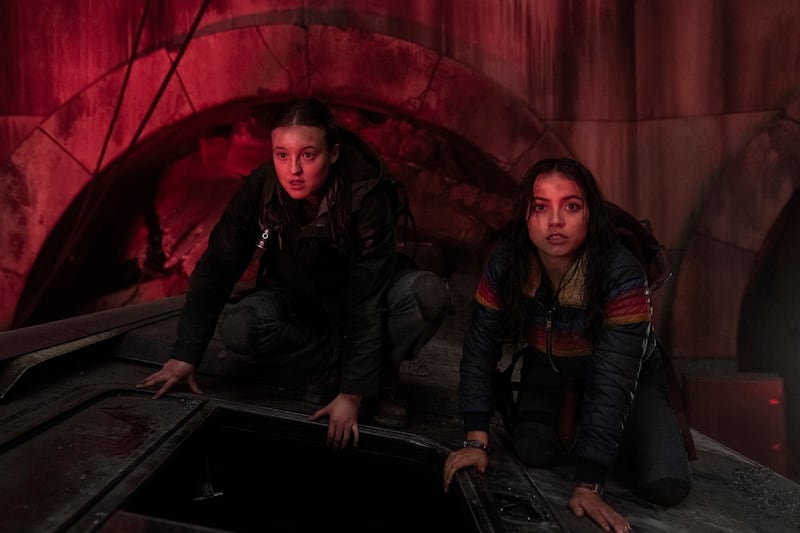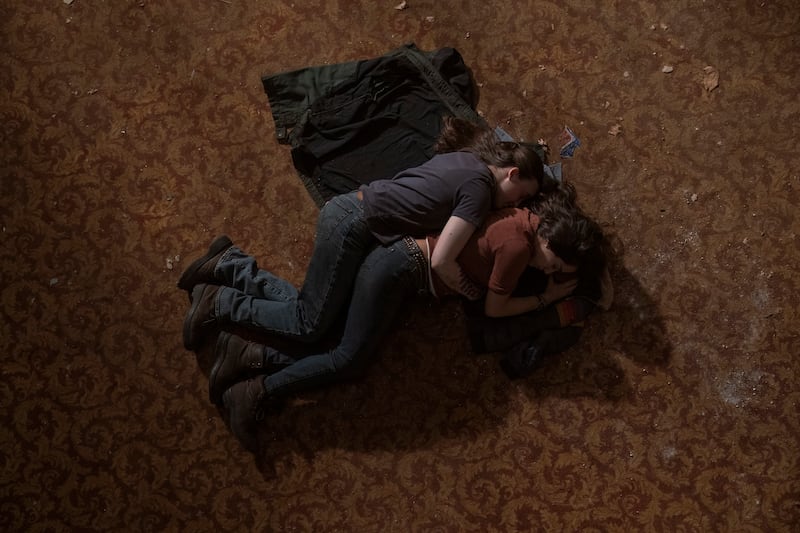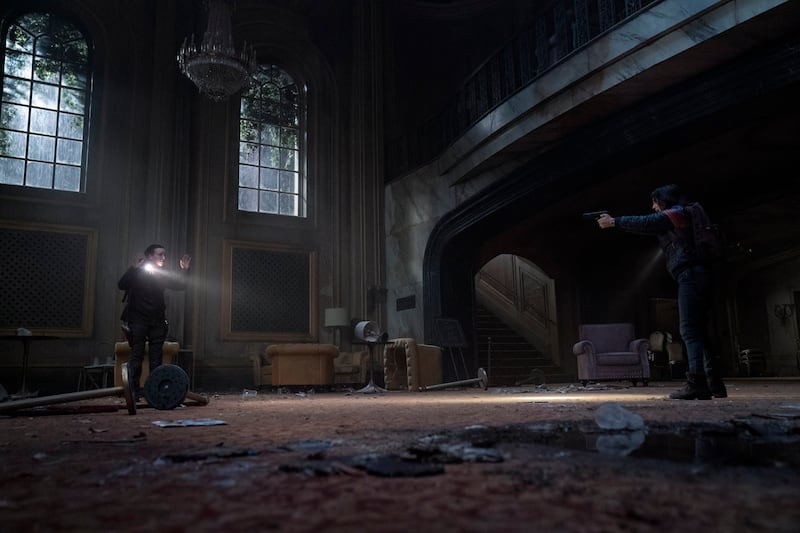There are changes that HBO’s adaptation of The Last of Us made from the video game it’s based on that don’t make sense. Thankfully, though, the detailed exploration of Dina (Isabela Merced) and Ellie’s (Bella Ramsey) relationship is the series at its best.
(Warning: Spoilers ahead.)
By placing Dina at the scene of Joel’s (Pedro Pascal) death, the show not only gives her motivation to join Ellie on her quest for revenge, but secures their bond more than the games ever could. Dina and Joel had an established—albeit short—bond, and being there for Joel’s death allows her to be the reason Ellie learns the identity of her surrogate father’s killers, and where they currently reside.

In Episode 4, their joint trauma takes a back seat, following last week’s grief heavy episode. The pair are now making their way on a quest to track down the WLF and Abby (Kaitlyn Dever) in Seattle, and while they run into the typical zombie fanfare, this episode is a testament to the lengths the series is willing to go to in order to solidify the intimate relationship between Dina and Ellie. We watch as they bicker and joke around with each other, and support each other through each horrific obstacle they face on their journey.
While they’re killing time, the two take refuge in a music shop, where a lone guitar has survived the ravaging of the apocalypse. Ellie tunes it and starts playing A-Ha’s “Take On Me,” and with Dina’s support, recreates one of the game’s most special moments.
This is a case where the show’s version of this instance in Dina and Ellie’s relationship feels more dynamic than the games, mostly because the camera focuses on Merced’s face expressing sheer awe as Dina watches Ellie sing. She looks at her companion as if she can’t believe Ellie is real, before subtly attempting to wipe the tears that have fallen down her face as this moment comes to an end.
The Last of Us is a series that soars in its quiet moments, even when the adaptation is making changes from the original story. Like Season 1’s “Long, Long Time,” this week’s episode is a masterclass in taking it slow, focusing almost entirely on Dina and Ellie’s growing relationship (while also doing some world building featuring Jeffery Wright’s Isaac).
Paired with last week’s somber episode, the series is proving that its most engaging aspects are these interpersonal relationships. Each conversation is propelled by gifted performers who command the screen when they’re given a chance to explore the depth of their characters that weren’t possible to be showcased in the games.
At the center of this fantastic episode is a scene that was changed from the games. In the game, Ellie gives Dina her intact gas mask to save Dina from the spores infested environment they find themselves in. This reveals the nature of her immunity, and while the same revelation happens in the show, Ellie instead sticks her arm in front of Dina when an Infected attempts to bite her, in turn forcing her own arm into a creature’s gnashing mouth.

The physicality of this sacrifice makes the moment hold a significant weight that is more brutal in the episode, making the audience feel the impact of Ellie’s sacrifice more than the game. The aftermath sees Dina pulling her gun on Ellie, thinking she’ll have to kill her before she can succumb to the bite and turn into a version of the very creature she saved Dina from. The tension present in this scene is a testament to Merced and Ramsay’s chemistry, which crackles through this otherwise silent scene.
The version of Dina that exists in The Last of Us II game is a character who symbolizes an unwavering morality that doesn’t necessarily exist post-apocalypse.
She tries to help Ellie onto a better path after Joel’s death, so that she doesn’t succumb to the same grief that has consumed Joel’s killer, Abby. This complicates things as Ellie’s vengeance transforms her into a fractured and meaner version of herself, while Dina maintains her moral purity throughout. After Ellie proves her immunity, Dina reveals to Ellie that she is pregnant. Instead of calling Dina a burden like her game counterpart does, Ellie is ecstatic about the news.

“I’m gonna be a dad,” she utters with a smile, and later asks Dina if she’s sure she wants to continue on their mission. They clasp hands and make a pact to continue “together,” making it clear that, while Dina’s pregnancy forced her to take a backseat in the games, here, her devotion to Ellie will withstand the transformation her body will go through.
In the HBO adaptation, Dina may not be as bloodthirsty as Ellie is, but she still seeks justice for her would-be father-in-law. It not only makes her a more fleshed out character, but allows this relationship to become a foundational aspect of The Last of Us.
In focusing Episode 4 almost entirely on Dina and Ellie, the series proves that, sometimes, adaptational changes can flesh out characters and relationships in a way that the source material could not. While the games simply showcased a queer relationship, the show has made Dina and Elle the foundational pairing of the series after Joel’s death, changing this beloved story for the better, and giving these two characters a well needed source of belonging in the desolate world they live in.
The post This Storyline Is the Surprise Best Part of ‘The Last of Us’ appeared first on The Daily Beast.




